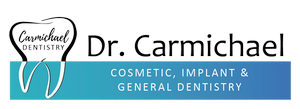Why You Might Need a Dental Crown
Why You Might Need a Dental Crown

What is a dental crown, and who benefits from getting one? A dental crown replaces the enamel covering of a tooth when it can no longer perform its function. But not just one reason leads to someone needing restoration with a dental crown. This blog discusses why you might need a dental crown, considering that various issues could weaken your teeth’s enamel.
What is a Dental Crown?
The term “dental crown” has two uses in dentistry. The word crown describes the portion of each tooth that protrudes out of the gums. The crown does not include the tooth’s roots, and enamel covers a healthy tooth’s crown. A crown can also refer to a specific type of dental restoration that covers the entire crown of a tooth. The latter is the type of crown we will discuss in this article.
A dental crown typically covers the exposed portion of a tooth and replaces all of its enamel. Dental crowns are custom-made to match your natural teeth’s color, shape, and size, providing a seamless and natural appearance. They are typically made from porcelain, ceramic, or metal alloys, chosen based on each patient’s specific needs.
Why Would a Tooth Need a Dental Crown?
A tooth may need a dental crown for a variety of reasons. Most commonly, a dental crown is needed when the enamel on a tooth no longer performs its function. Enamel is the hardest substance in the human body, designed to withstand the thermal, chemical, and mechanical forces our teeth undergo when we eat and drink. Enamel is susceptible to cracking, acid erosion, and decay, all of which can lead to the need for a crown. The following are the most common dental issues that might need coverage with a dental crown.
1. Large Cavities
Cavities are bacterial infections of the enamel and other hard substances that make up a tooth. This bacterium produces acid that dissolves the enamel so that the bacteria can penetrate the tooth. Cavities weaken the enamel, making it uncomfortable and hard to chew. In many cases, a large cavity infiltrates the tooth leaving very little healthy tooth structure to support a filling, so a crown is needed. Crowns can cover and protect the damaged tooth, preventing further decay and restoring its functionality.
2. Large Fillings
An existing large filling may necessitate a dental crown on a tooth. While a filling does a great job of replacing structure lost from decay, it does not add any strength to a tooth; it simply fills in the hole. A crown might be the best route to prevent further damage when a large filling makes up more than half of the exposed tooth.
3. Severe Acid Erosion
People who suffer from severe acid reflux or have consistent acidic habits often lose significant amounts of enamel through acid erosion. Rebuilding these teeth and replacing the lost enamel with a dental crown helps to prevent more damage and the loss of the tooth itself.

4. Loss Enamel from Tooth Wear
Another area of significant enamel loss is the mechanical wear and tear from heavy clenching or grinding of the teeth. This leads to the shortening and flattening of the teeth as the enamel slowly wears away. A crown can restore the tooth’s shape, size, and functionality while providing a durable, long-lasting solution that protects the worn tooth structure.
5. Cracked Teeth
While cracks are more likely to develop on teeth with large fillings, they can also happen to healthy teeth. Cracks are common in the back teeth of people who clench or grind at night. They may also result from injuries like biting a hard, foreign object. When a tooth cracks, temperature sensitivity and bacteria affect the tooth. A crack tends to lead to cavities that can be restored with a dental crown.
6. Root Canal Treatment
After undergoing root canal therapy, a tooth becomes more fragile and susceptible to fracture because root canal treatments remove the nerves and blood supply from the hollow chamber inside a tooth. A dental crown can be placed to reinforce and protect the tooth from breaking, ensuring its long-term stability and functionality.

7. Dental Bridges
A dental bridge is used to replace one or more missing teeth. It consists of a prosthetic tooth (pontic) or multiple pontics, which fill the gap left by the missing tooth/teeth, and dental crowns attached to the adjacent healthy teeth on either side of the gap. The dental crowns support the bridge, providing stability and support for the pontic(s). The dental crowns are cemented or bonded onto the prepared abutment teeth, securely holding them in place.
If you are experiencing dental issues or are interested in improving the appearance of your teeth, a dental crown could be the solution. At Carmichael Dentistry, we can assess your oral health and determine if a dental crown is an appropriate solution for your situation. We handle everything from dental crowns, bridges, and implants to cosmetic and emergency dentistry. Give us a call at (858) 484-2560, or click here to request an appointment.




